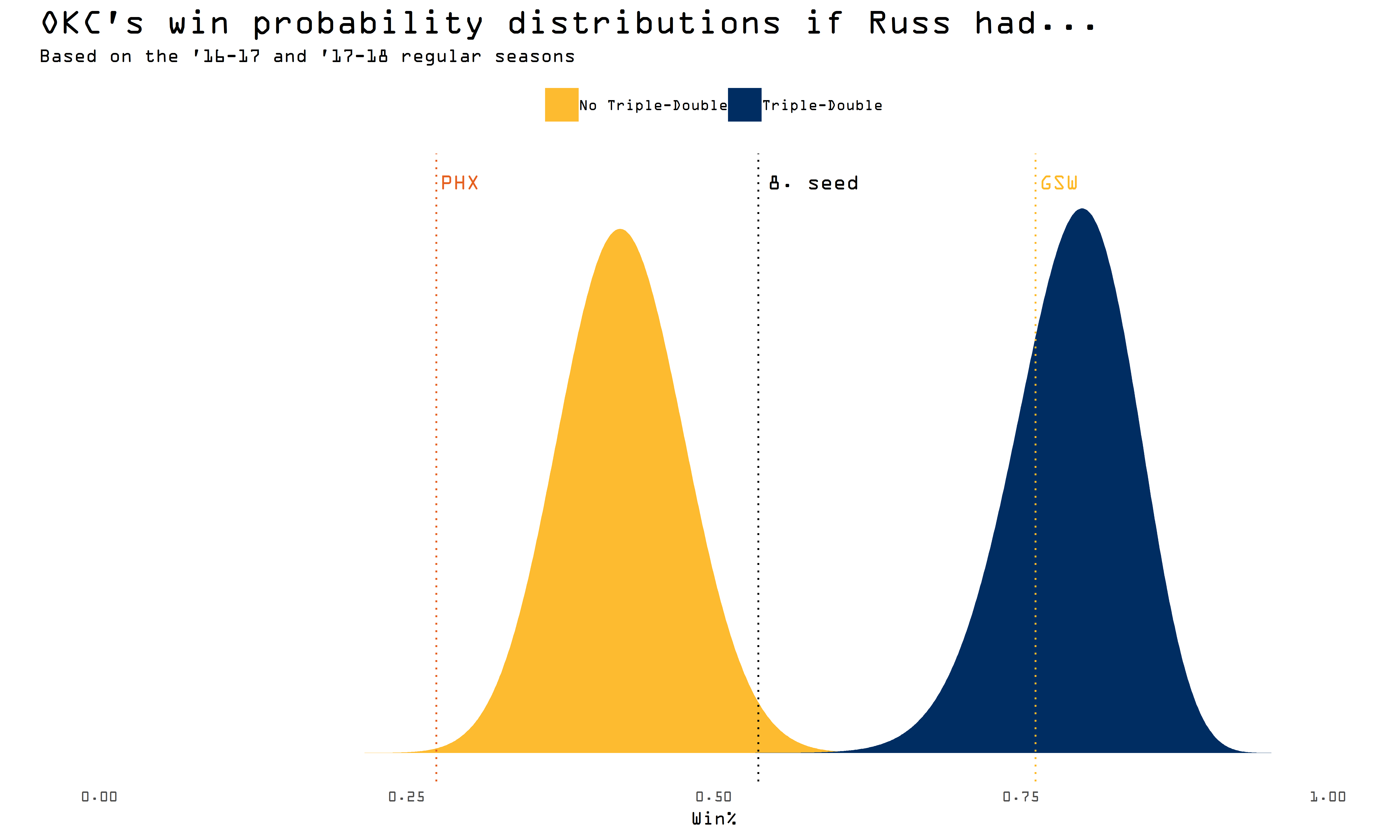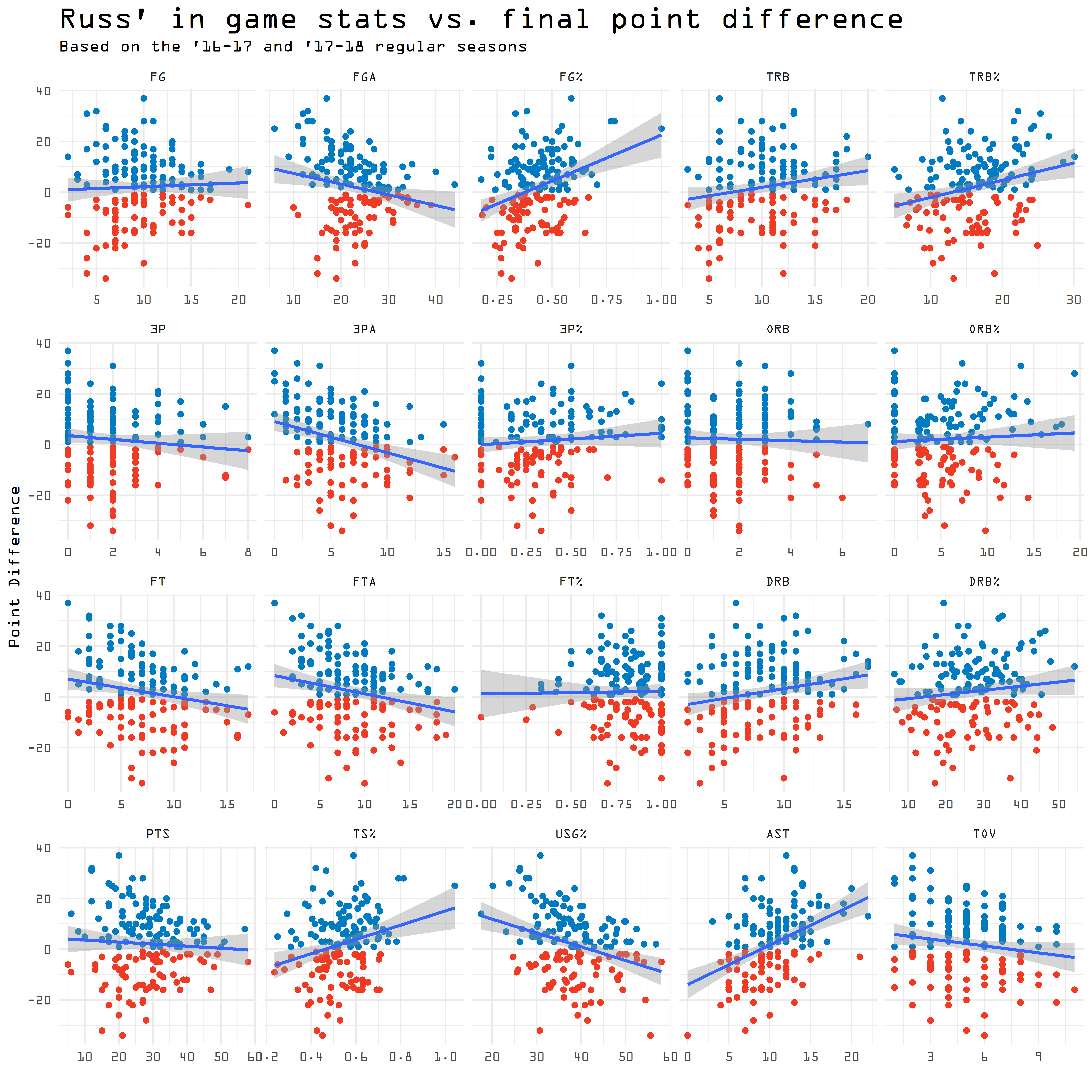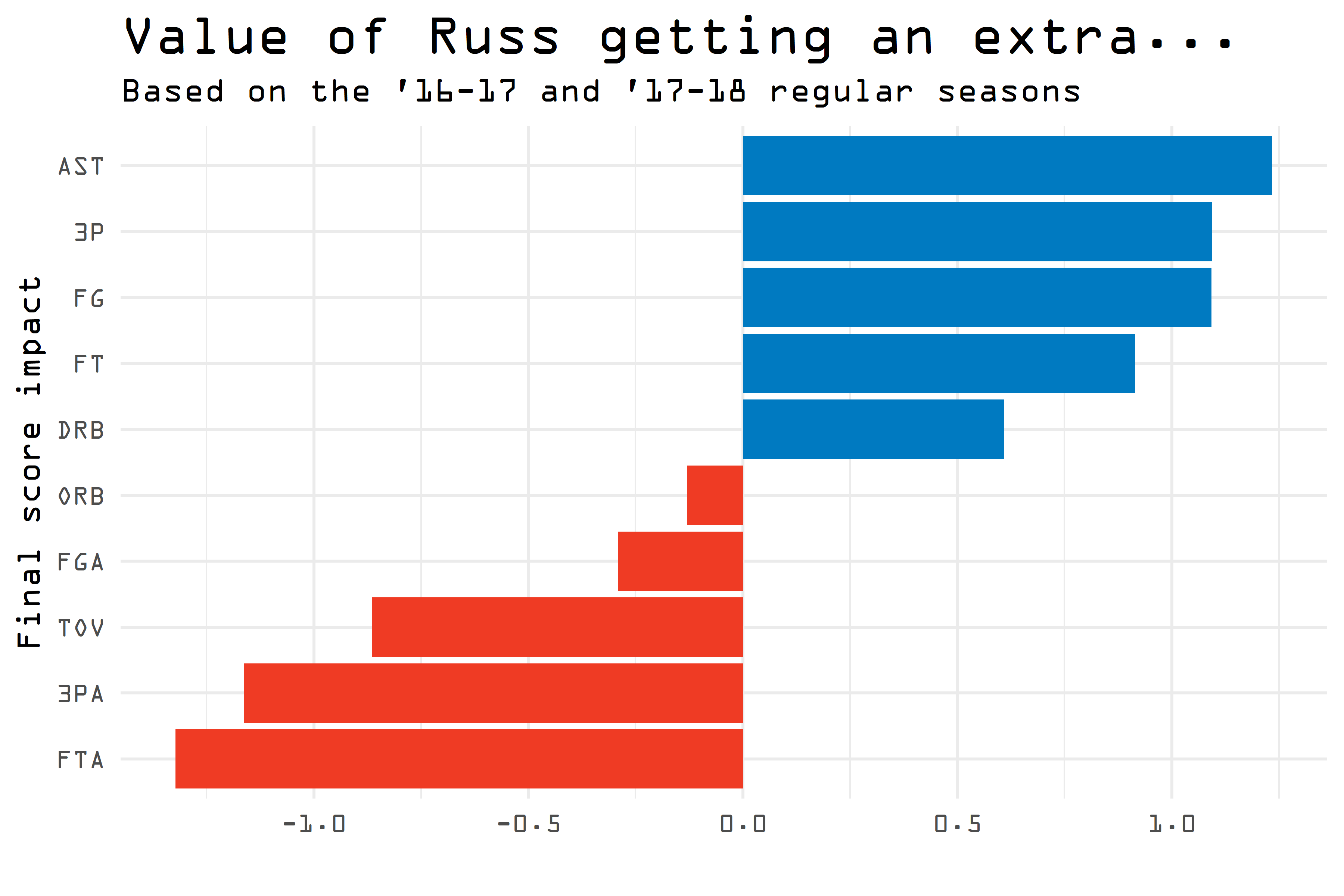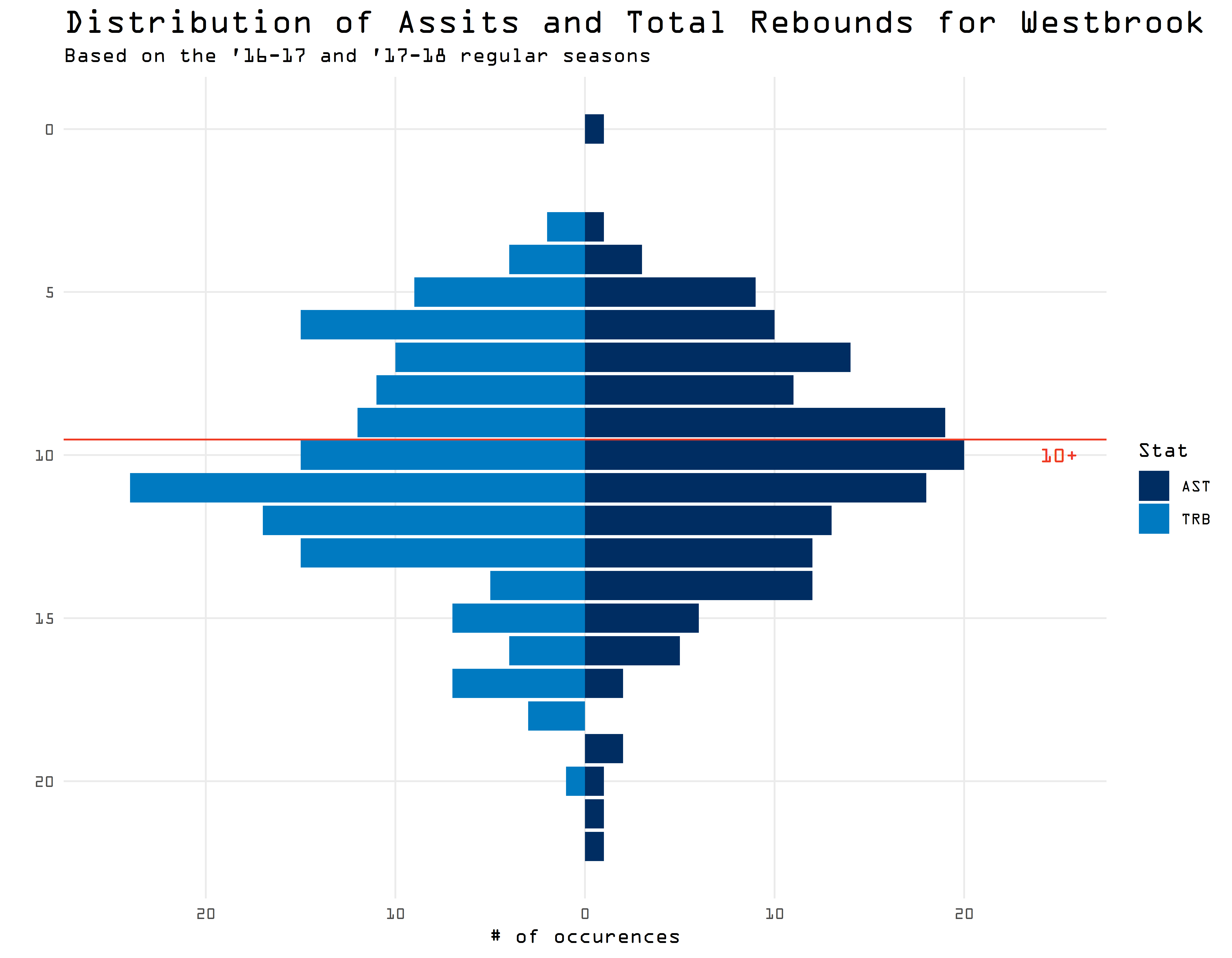
Russell Westbrook is unquestionably one of the most fun players to watch in the NBA.
Personally, he’s my favorite. His energy and raw talent can light up the court and fans around the World, with spectacular moves like this:
Russ is also known to frequently produce triple-doubles, a measure of his superhuman ability to perform in multiple areas of the game. Not everyone is into these triple-doubles though. I’m looking at you, Colin - sincerely, a huge fan (just turn down the hate on Russ, please!). Their value is questioned, sometimes blaming it on the increased pace of the NBA in recent years, or simply saying Russ is just padding his stats to record triple-doubles, sneaking in a little extra rebound here and there, by the help of his teammates.

In the countdown until Westbrook’s highly anticipated return to playing (which, thankfully have happened yesterday), I wanted to see what the numbers have to say on this matter. So below is my data-driven, simple analysis of the impact on Russell’s triple-doubles.
For this analysis, I’m using data from the ’16-17 and ’17-18 regular seasons, as these last two seasons were the first ones when Westbrook had to play without his Batman (or Robin?!), Kevin Durant.
The win% argument
First, before we go deeply into the details, let’s see the impact of Russ recording a triple-double on the final outcome of basketball games.
If we just look at the raw averages, we will already realize that the difference is large. Westbrook recorded 67 triple-doubles in the last two season, winning 79% of these games. Of the games when Russell did not have a triple-double, they just won 43%.
Such a large difference ensures the idea that this is not just by chance. But if we want to be more confident, we can use the beta distribution to model the distribution of these two winning percentages. This helps us understand who significant the difference is.

There is virtually almost 0 possibility that the winning percentages are different just by chance. If Russ has a triple-double, OKC is among the very best teams of the NBA, pacing a better winning percentage than even Golden State. If he does not, OKC is in midway between being a weak playoff contender and being one of the worst teams (including those intentionally tanking!).
It might be quite obvious that a triple-double supercharges a team’s chances to win, but this is not necessarily the case. For example, LeBron James is among the few players who have recorded a considerable amount of tripe-doubles in the last two seasons (although still less than half as many as Russell did, achieving a total of 31). The Cavs have won 71% of these games, but they also managed to win 63% of all the other match-ups. This means we can’t be overly confident if there is a true uplift generated by James’ triple-doubles.
The value of doing more
If we want to go one step further, we can see how Westbrook’s individual stats have lined up against the final point difference of every game he’s played in. A positive difference encodes a W for OKC.
Simple linear regression lines are fitted to the data to help visual analysis.

Okay, so this is quite interesting. Some of the things to consider:
1. More points for Russ does not seem to be a good thing. This might come from:
2. Westbrook taking on too much load from time to time. FGA, 3PA, USG% all suggest that the more he does the worse the final score is for OKC. He might not have a choice though - lacking a strong supporting cast - so this is no indictment against him.
3. His assists are very positive on the other hand - the only thing is, someone has to convert those passes. And let’s not forget more assists might mean teammates shooting with more precision, rather than Russ passing better.
4. Yep, turnovers can hurt
5. And finally the most scrutinized part: defensive rebounds. The more he gets, the better. However, I can hear critics saying: he will get more if the other team shoots poorly, so this is inherently biased. That might be so, but his rebound rate also shows a clear positive relationship to the final score!
To better separate the impact of each stat, we can run a (simple linear) regression to estimate their joint effect.

This suggests that apart from the obvious (assists are good, turnovers are bad)
* Him taking too many shots can hurt the Thunder (specially three pointers!)
* Interestingly, more free-throw attempts seems to be a bad thing as well, even though Westbrook is fine at the line. Probably due to something confounding effect, like FTA correlating strongly with usage rate.
* While we could theorize while him doing some rebounding on the offensive end is a bad thing (e.g. if he focuses on rebounding he might not be getting back to stop fast breaks), I wouldn’t do so. This is likely just due to the fact that he gets more ORBs when his team misses more, which is supported by the ORB%’s impact as well.
So far so good. Russ - haters: 1 - 0.

… but …
What about stat padding?
While we saw that Westbrook’s assists and rebounds carry a positive lift on the teams performance, this still doesn’t mean that he is not putting up some tricks to flip the coin to his side when he’s close to recording a triple-double.
If this is really done just for his triple-doubles (e.g. him grabbing the rebounds on the defensive side not being part of the team’s uptempo playing style), we would expect some strange mechanics in his rebound/assist numbers in the 8-10 range.

However, I, for one, do not see anything really extraordinary on the above chart. No dip at 9, no big spike at 10…
We could continue and get into nit-picking every game’s every statline to find something to support that Westbrook’s triple-doubles are not that valuable. But they clearly translate to wins, and their building-blocks are also good for OKC. So let’s just appreciate his greatness.
Keep up the good work, Brodie.



